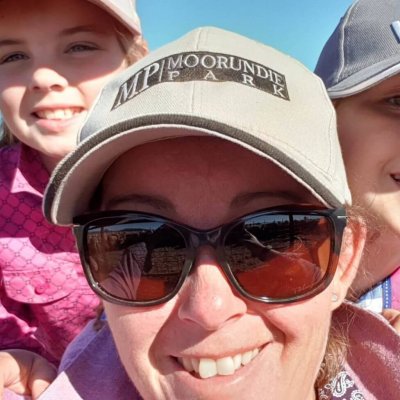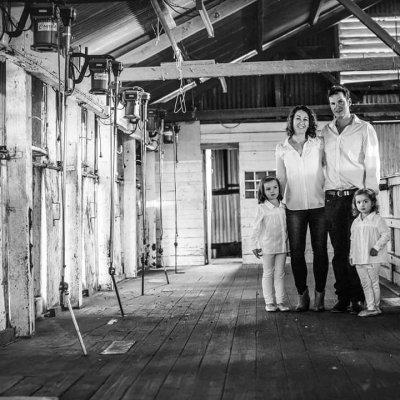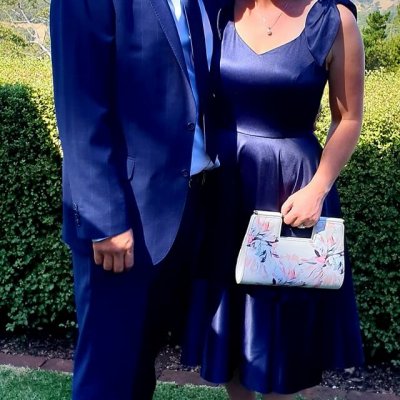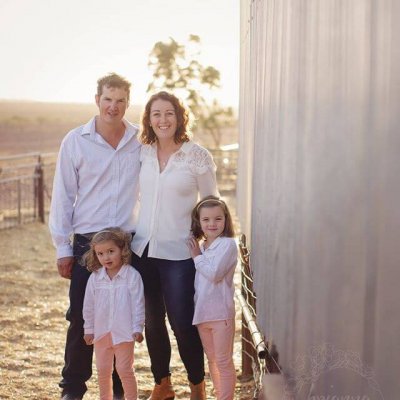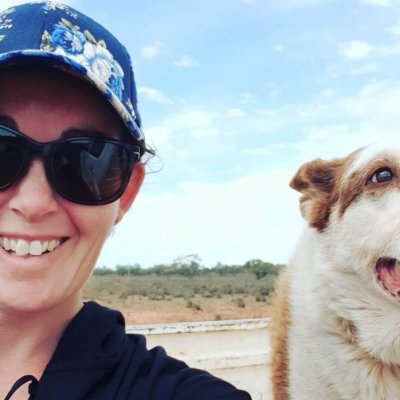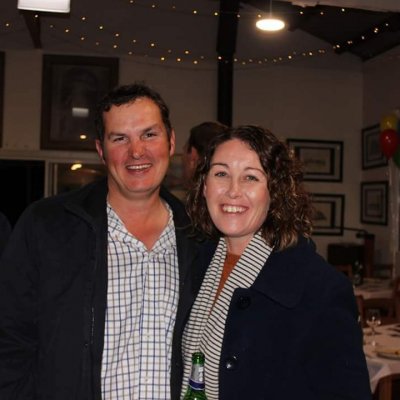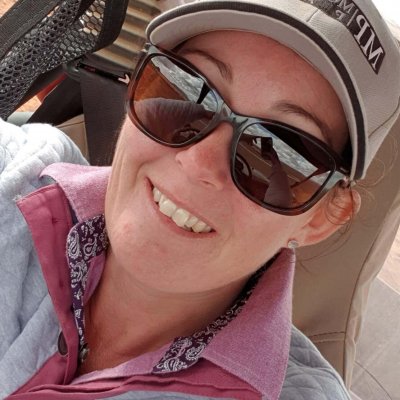Amanda Michael wears many hats while running not one, but four sheep and cattle stations alongside her hubby and his family north of Port Augusta, South Australia. She sees being on the land and working in rural industries as a wonderful privilege, and loves nothing more than getting her hands dirty and relishing in the buzz of shearing time. She believes that rural women have a lot to contribute and have the freedom to diversify themselves in many different ways. Caring and creative, she is community-minded, is an accomplished photographer and is happiest when drafting in the yards, spending time with her two daughters or savouring the sights and smells of the land after rain.
When asked what concerned her about the health and safety of those in rural industries and communities, Amanda highlighted complacency as a major issue. To combat this, she is persistent in having regular conversations about safety and suggests that even subtle reminders can be helpful. She also reinforces the importance of staying on top of maintenance and that timely attention to the little things can go a long way towards preventing big problems. In order to get everyone on board with health and safety, she says it’s imperative to make it abundantly clear that the reason for making changes is simply because you care – and that you want each and every person to come home safely at the end of each day.
How would you describe yourself in three words?
Multi-tasker, creative and caring.
Tell me something interesting about yourself...
I really enjoy drafting sheep and the buzz during shearing time. I’d rather be out in the paddock than home washing windows any day!
I love taking photos but am yet to purchase the camera of my dreams… though it’s amazing the photos a mobile phone can take!
What's one achievement you are most proud of?
Being blessed with our two beautiful daughters.
What makes you truly happy?
Spending time with my family and friends.
Watching our girls grow – the smiles on their faces when they are doing something they love or have achieved is second to none.
Rain. Such a precious commodity is water. Rain always makes me smile as it can bring everything back to life.
What do you love the most about being a rural woman?
There is so much I love about being a rural woman, but most of all, it’s how we can contribute and diversify ourselves in so many ways. One day I can be drafting sheep, the next doing bookwork or helping out at a school event.
To be involved in the industry, growing up on the land and continuing to do so is a wonderful privilege.
Tell me about a time when you felt worried about your own or someone else’s health, safety or wellbeing on the farm, boat or in some other aspect of rural life.
Working in rural industries has plenty of risks, but not knowing where someone might be on the property if something were to happen to them is the biggest – and daily – worry of them all.
I worry every time my husband (and daughters) get on a motorbike, particularly with his love for his job, speed and invincibility. All it can take is an unseen stump, a kangaroo jumping out from behind a bush, a rock and all the other unexpected things. He has experienced plenty of injuries and broken bones while working on the land.
What practical things did or could you, your partner and / or others do to prevent someone from getting hurt?
Complacency is a major contributor to injuries. Gentle reminders of safety do not go astray.
Fixing the ‘little things’ before they become ‘big things’ and keeping up to date with servicing and maintenance of machinery and tools.
For us in the wool industry, keeping our woolsheds and sheep yards maintained, tidy and user-friendly is important.
There is always something to repair to make life better, safer and easier.
"Have everyone understand that the main reason behind implementing work health and safety measures is because you care. You want them to come home every night unscathed."
Amanda Michael, Port Augusta, South Australia AU Tweet this
Is there a time, place or scenario when your partner / workers are more willing to make changes to the way work is done?
In confined spaces where they cannot escape!
It is definitely easier to discuss such things when times are not as busy, e.g. not during shearing etc.
In my case, I persisted with the topic of safety and how we could/should/would implement improvements, in having them understand the dangers involved, in reinforcing the need for common sense and in having consideration for the people and the environment around them.
Discussing scenarios and hearing other people’s stories also helps to ‘plant a seed’.
If you could give any advice to another rural woman about work health and safety in rural industries, about influencing change in business - or just in general - what would it be?
Having everyone (your husband/partner/business partners/employees/children) understand that the main reason behind implementing work health and safety measures is because you CARE. You care for their safety and want them to come home every night unscathed from their daily tasks.
Is there anything else you'd like to add?
Yes. Working with Alex Thomas to break down WH&S within our business and help us to identify risks that we would normally overlook (because they have been things we accept or ‘it’s just how it is and has been forever’) has been a big changer for us, but more so for my husband! We (he) now willingly looks at things differently and is open to thinking about tackling tasks with a more safety-minded approach. Making the decision to contact Alex and have her help us break it all down and realise that it’s not all about the paperwork trail has been the best decision ever.
